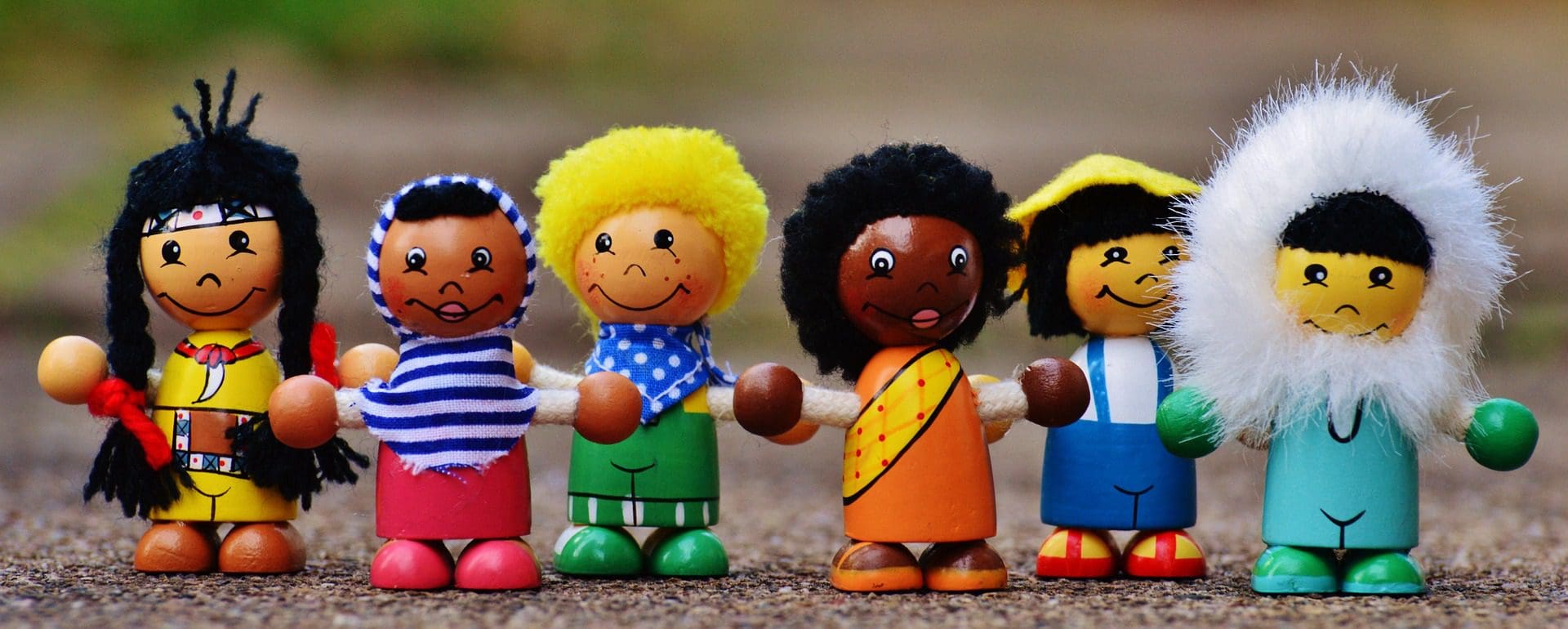Post photo: wooden dolls | © Pixabay
All people are equal before God and they should be equal before the law, at least that's what the constitutions of the free world say.
But it is precisely we humans who make the differences, even where there are obviously none. And even where we look for what we have in common, we end up creating what separates us, at least from the completely different people.
Our perception and the associated processing of impressions from the outside world seems to consist only of the constant comparison of equal and unequal; similar to the binary code of calculators.
So we cling to such comparisons our entire lives and have to assume that this is the nature of things, at least ours.
It is interesting for the observer to determine which differences the individual people cling to and also which ones they work through collectively.
Because in doing so we humans unexpectedly even create whole ethnic groups, tribes up to nations. But also barbarians, “subhumans” or the handicapped.
Interesting for me was the first collective difference during my school days. This did not differentiate between boys and girls, stupid or stupid, German or non-German, but between students with Geha fountain pens and those with Pelikan fountain pens. Incidentally, I had a Geha fountain pen, but I can't remember whether that was a good thing or a bad thing.
Later, we students in Heilbronn differed in whether we spent the summer camp on the Gaffenberg or in the AWO-Waldheim, and at the end of our school days, where we attended the dance course.
Nowadays, such differences are more likely to be made among the students by the "clothes" shown or the mobile phone, which is just as meaningless as our distinctions were then.
Later in life, it is more the physical characteristics, religious affiliation shown, mother tongue or lack of language skills or the preferred culture that we humans love to work on with others.
The expressiveness for ourselves and our environment will be similar to that of our school days; but without these constant comparisons, we can hardly move through our own lives, nor can we communicate with other people.
In any case, it saves us all from looking for distinctions that are of actual importance to ourselves and also to other people.
Ultimately, this would be the difference between being an asset to the environment and our fellow human beings or just a liability; i.e. the increasingly discussed ecological and social footprint that we leave behind at the end of our days.
It is precisely this distinction that we all shy away from the most, and that is why we prefer to continue to work hand in hand with the above-mentioned comparisons, or rather, along trivialities, than to make the difference with ourselves for the first time and try to be an asset.
"There are three classes of men: lovers of wisdom, lovers of honor, lovers of gain."
Plato, The Republic (ca. 380 BC, Book IX)




